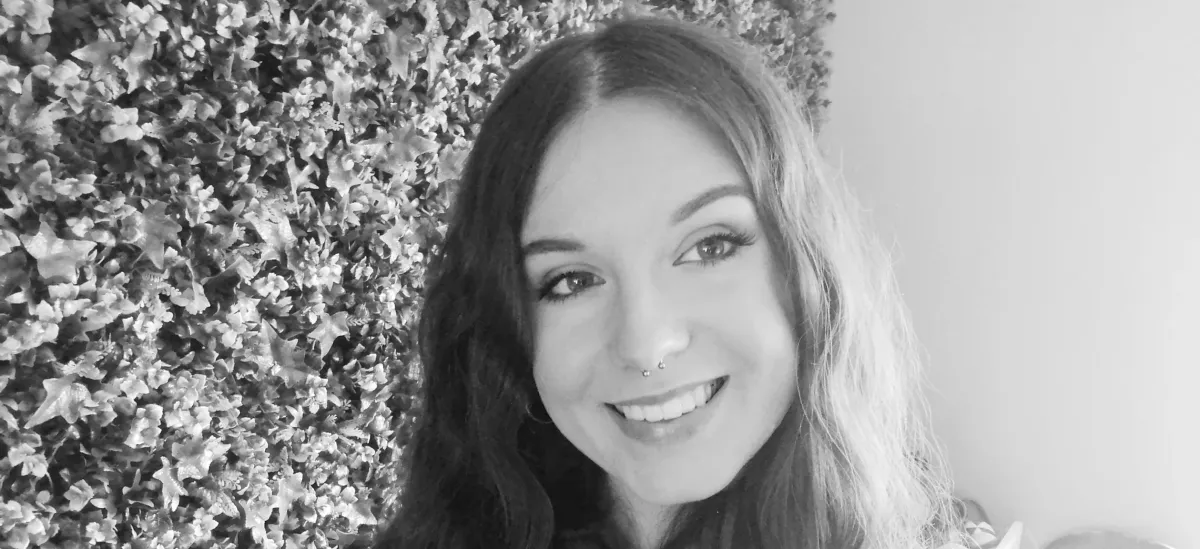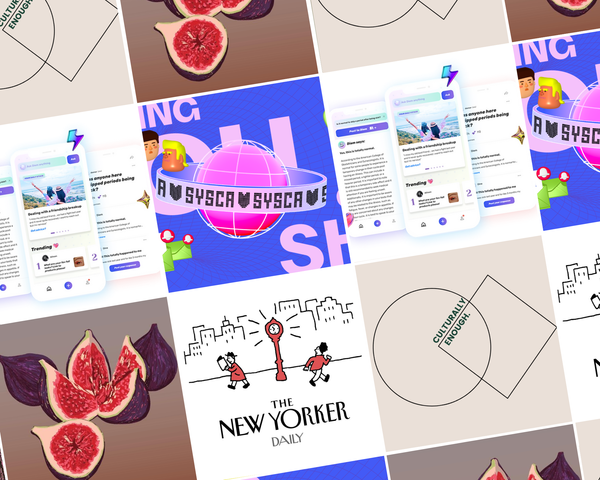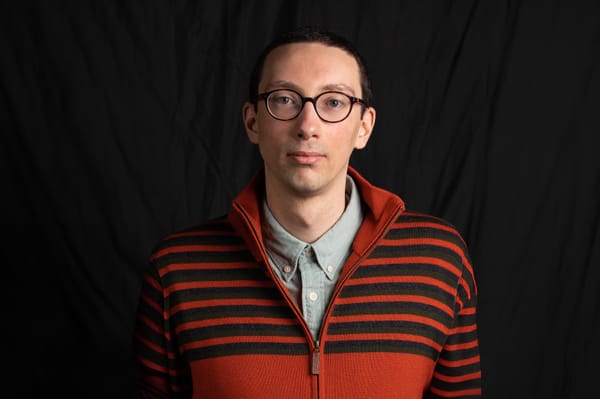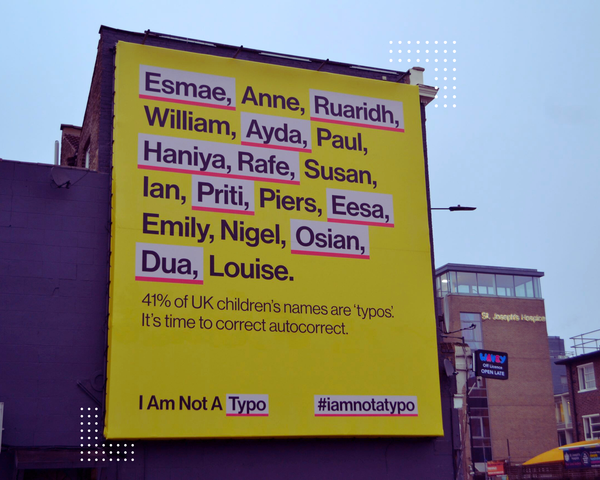My Coming Out: A Chat with Rachel Badham
Coming out stories are as diverse as people.

Access the Audio Read version of this article directly on Spotify for Podcasters.
“I’m incredibly proud that I came out despite having very low self-confidence, and can now talk openly about my queerness, which is something I don’t think 14-year-old me would have ever expected to do.”
This is the third instalment of My Coming Out, a monthly interview series sharing the unique stories of people all over the world, who came out as lesbian, gay, bisexual, transgender, queer, intersex, asexual or questioning.
Coming out stories are as diverse as people. This series may inspire you, make you laugh or even cry at times. They also offer guidance for effective allyship of the LGBTQIA+ community. We hope they help you and your loved ones. To share your own coming out story, please contact our editor here.
This month we chat with Rachel Badham, also known as Rae, a 21-year-old pansexual journalist based in Brighton, who shared her coming out journey with us.
Hi Rae, please tell us a bit about yourself
I identify as pansexual, and my pronouns are she/they. I’m currently unsure of how best to describe my gender identity after realising in the past year or so that I don’t feel much affinity with my assigned gender. However, I’ve known I wasn’t straight from my early teens.
Because everyone has a different way of ‘knowing’, we always ask people in this column, when did you ‘know’?
In retrospect, I knew from a very young age, as I’d have crushes on female celebrities (as I explained in my 2019 piece for DIVA, titled Star Wars Made Me Gay), but I never addressed these feelings. It became apparent to me that I was attracted to people other than men at 14, when I developed a full-blown crush on a female friend at school and began to explore queer culture online, mostly by watching LGBTQ+ YouTubers. I found that their content resonated with me, and from that, I realised that I too, was part of this queer community.

So when did you come out, and why?
I first came out to my two closest secondary school friends when I was 15. It was a fairly spontaneous decision, but I was tired of not being my true self around the people I cared about most. I was very unhappy during that time in my life for a handful of reasons, but not sharing my identity with anyone was certainly one of those reasons, so I decided enough was enough.
How did you do it?
I remember the details of that day well – down to the clothes I was wearing. I was chatting with my closest friends on the way to play badminton, and one of them was talking about a boy she liked. I’m not sure why I chose that exact moment to tell them, but I ended up saying that I liked a girl in our class. Neither of them were overly surprised, and they asked me a few brief questions about my sexuality and I said I thought I was bisexual because I was attracted to people of multiple genders. They expressed their support for me, and as planned, we went to play badminton. From then on, my sexuality just became common knowledge among our friendship group and my family, as I stopped pretending to be straight and talked more openly about my feelings.
Did you come out once, or several times?
I came out multiple times after many years of questioning my sexuality. At 15, I came out as bisexual, and shortly after, came out again as a lesbian. However, when I finished college, I realised I was attracted to people of all genders and came out as pansexual, which was when I finally made peace with myself after questioning for so long.
How did people react?
I’ve never received a negative reaction (to my face anyway) when coming out to someone. Thankfully, all of my close friends and family were very supportive of me, and continue to be so to this day.
What were your fears or concerns before, or when you came out?
I’m incredibly fortunate in that I knew everyone in my life would be supportive – I couldn’t ask for a more accepting family and I know I’m very lucky to be able to say that. However, I struggled with internalised bi/panphobia for many years, which I think is why I questioned my sexuality for so long. Before I came out to anyone, I was frequently exposed to negative stereotypes of bi and pan people, where they were depicted as confused, greedy, or not queer enough to be a part of the LGBTQ+ community. I wasn’t concerned about what others would think of me, but I knew that once I came out, I could no longer convince myself that I wasn’t one of the bi/pan people who were so commonly demonised and excluded. Thankfully, I have now worked past my internalised prejudices, and I’m more than proud to be part of the wonderful bi+ community.
Do you have any frustrations or concerns about your community that you would like to address?
I really do feel as if the LGBTQ+ community is my home, and even if I could choose to be a straight, cis person, I wouldn’t take that option. However, continuous prejudices within the LGBTQ+ community such as biphobia and transphobia are a huge concern to me – we already face enough adversity as it is, so solidarity with one another is of the greatest importance if we are to continue fighting for equality. Racism within the LGBTQ+ community is also very worrying, as the recent Pride in London controversy demonstrated. All forms of discrimination intersect, and we will not achieve true equality unless our fight is coupled with that against racism.
How did coming out affect your life?
It didn’t actually change that much – I feel as if my coming out story is very low-key compared to others! My life and interpersonal relationships essentially stayed the same. However, after coming out as pansexual four years ago, I feel much happier with myself, and my involvement in the LGBTQ+ community has allowed me to meet some wonderful people and learn about our rich history and culture - coming out gave me the space to expand my mind in so many ways.
Are you out in all aspects of your life?
I am, which is a huge privilege, as many people are either partially out or not out at all. I feel very comfortable discussing my identity with my family, and I’m fortunate enough to work at an LGBTQ+ publication where I can be completely myself while pursuing my passion for writing.
What are you the most grateful for now that you’ve come out, and about your community?
I’m most grateful for the self-confidence it has given me – now that I’ve come out and fully embraced my identity, I feel much more at ease with myself and this has made every aspect of my life easier. By learning how to have enough confidence to be me, I’ve become generally more outspoken and less afraid to express my opinions – and that’s coming from someone who would never raise their hand in class. It has also introduced me to our amazing community, the beautiful world of LGBTQ+ arts and literature, and it even helped me figure out what career path I wanted to take, as I realised I wanted to be a journalist after writing a piece on LGBTQ+ equality for my college magazine in 2016.
Do you have any regrets about how you came out to the world?
I think I came out in the best way possible I could at the time – I believe that however you come out is a reflection of your current knowledge, circumstance, and emotions, and you cannot do better than that, so regrets aren’t very useful. I think it’s better to work towards accepting yourself and educating those around you instead of criticising yourself when things don’t fully go to plan.
What would you tell your younger self about this journey? Is there anything you wish you had known?
I wish I had known that no matter how confused I had felt then, I would eventually feel at peace with myself. I spent a very long time worrying that I would never understand my identity or feel content with myself, but it just takes a little while to get there sometimes – I wish I had just relaxed and enjoyed the ride of being young a bit more instead of obsessing over trying to label myself and being ashamed of who I was, when in reality, I should have been proud. Unfortunately, many LGBTQ+ people are taught to be ashamed – it’s not an issue with the individual, but instead a much wider problem.
What advice would you give people going through this, whether they are scared of coming out, going through this alone, or unsure of how to do it?
Coming out can be one of the scariest things an LGBTQ+ person does in their lifetime, but it can also be one of the most liberating things. Know that for each person who doesn’t support you, there are many more who do support you. Those who do not accept you, are not on the right side of history, personal and public, because as cliché as it sounds – love always wins. If you’re unsure how to come out, then take it in small steps – choose the person in your life who you are closest to, or feel most comfortable coming out to, and start from there, instead of working out how to come out to the entire world. There is no need to come out immediately, and if you need more time, then take it – it’s your identity and your story. You can always reach out to local LGBTQ+ networks in confidence, as knowing you have that support behind you is a huge relief and can give you the boost you may need to come out.
What are you the most proud of in your journey?
Having the courage to be yourself is something everyone should be proud of, no matter how or when you came out. I’m incredibly proud that I came out despite having very low self-confidence, and can now talk openly about my queerness, which is something I don’t think 14-year-old me would have ever expected to do. I’m also proud that I work for a magazine that promotes LGBTQ+ equality, and I hope that in some small way, I am making a difference.
If you could, what would you like to change to make this a better experience for people, and to improve life for the LGBTQIA+ community?
It’s hard to say because coming out is such a deeply personal experience – some people want to come out loudly and share their pride with others, while some prefer to keep it to themselves, and it's perfectly fine to do either because it’s your identity and your story. However, I think the regulations which were implemented in the Mie region of Japan last year were a great idea – the new laws made it illegal to out someone without their permission, which is so important as outing can have devastating consequences and can even lead to suicide, as we saw when American student Tyler Clementi took his own life in 2010 after being outed as gay. I also think improved education is key to improving acceptance in all aspects of life, so I’m thrilled that it is now compulsory for UK public schools to include LGBTQ+ topics in their curriculum.
What advice would you give to people for them to be supportive and effective allies when a loved one is coming out to them?
Listening is paramount, and the best way to show that you understand how personal coming out can be. Although some people may disagree with me on this one, I think it’s perfectly fine to ask questions, as long as they are respectful. A good way to decide if a question is inappropriate to ask is to think: would I feel uncomfortable if someone asked me this? Also consider if you would ask the same question to a straight, cis person – you’re unlikely to ask them very intimate things e.g. about their relationships, their bodies, etc. So if you wouldn’t have that conversation with your straight/cis friends, maybe think carefully before bringing it up with LGBTQ+ friends. Of course, it all depends on the relationship you have with the person who is coming out to you, but as a rule of thumb, let them lead the conversation and tell you what they want you to know, while letting them know that you support them and are proud of them for embracing their identity.
If they don’t have many queer friends, offer to go to LGBTQ+ events with them such as Pride, or check out the local LGBTQ+ nightlife scene together to help them feel closer to their local queer community. It’s more than okay to be unknowledgeable about the LGBTQ+ community as we’re not often taught about these topics in school – if I didn’t identify as LGBTQ+, I wouldn’t have the knowledge I do because as a society, we’re not commonly exposed to LGBTQ+ history and contemporary issues (although representation is slowly improving). However, educating yourself is very important and demonstrates to your loved ones that you are making an active effort to support them.
What should people NOT do when someone comes out to them?
It should go without saying, but don’t invalidate them or their experiences. A response I’ve gotten a couple of times when I have come out to people is ‘I know’. More often than not, this isn’t intended to be an insult and I think a lot of straight/cis people say this as a way to show that they support you - they believe that by making it clear they already knew about your identity and didn’t treat you any differently, you’ll see it as a sign that they accept you. However, it can be invalidating if someone says this to you without giving you a chance to tell them your story (that is, if you want to). It can also be a little unsettling to think that someone has been speculating over your identity, which has been very personal to you, for a long time. If someone comes out to you, listen to what they have to say – if it's someone close to you, then chances are they’ve planned this moment out for a while, so let them have the coming out they want to have, and listen to their experiences rather than assume anything.
Are there any resources you would like to share that helped you personally or could help others?
For bi/pan people specifically, I think seeking out bisexual positive content is so important, as there is a lot of harmful content online which you shouldn’t feel as if you have to engage in. I turned to YouTube when I was questioning my sexuality, but unfortunately came across some very damaging content, particularly from the infamous Arielle Scarcella. However, there are some really talented LGBTQ+ creators on the platform - some of my favourite bi/pan/queer YouTubers are Ash Hardell and Jessie Paege who both make great educational videos about the LGBTQ+ community, and watching their content helped me discover who I am as well as make me proud to be pansexual. There are also lots of great LGBTQ+ organisations in the UK which can provide support for those in need, such as Mermaids, the LGBT Foundation, and Mind Out, which are all very inclusive and have plenty of information online about how you can access help.
Rachel Badham is a writer specialising in LGBTQ+ topics, and works with Scene Magazine, Woman and Home, Diva, and more.
Would you like to share your coming out story with us? Please contact our editor here: team@thespillmag.com.





